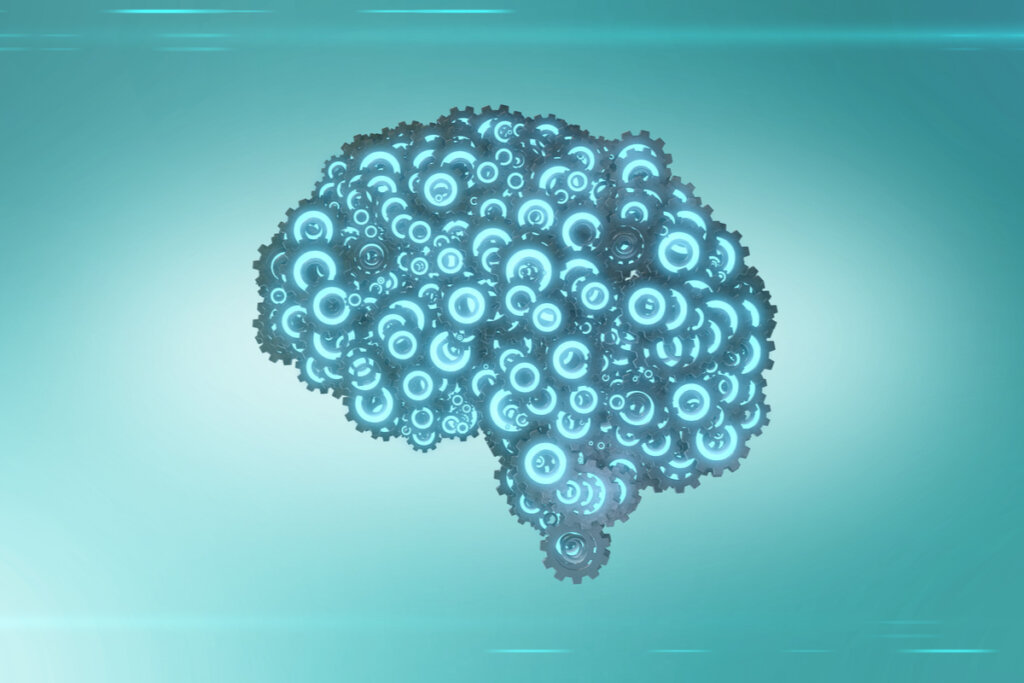The demands of modern life can cause damage to your brain and your mental health. Indeed, the pace and intensity of societal demands shape the way you experience and live your life.
This new way of living is influenced by a multifaceted set of technological, scientific, and economic changes. Furthermore, the impositions modernity places on you increase the levels of cortisol (stress) in your body. Stress is actually an adaptive response, but when it’s generated persistently and at high levels, it can become a problem for your brain.
In a study published in Molecular Psychiatry, it was found that chronic stress produces alterations in the brain. These changes explain why people who experience chronic stress are also more likely to suffer from mood and anxiety disorders.
The researchers behind this study conducted several experiments to examine the impact of chronic stress on the brain. They discovered that stress decreases neurogenesis and alters hippocampal function by promoting oligodendrogenesis. This alters the cellular composition and structure of white matter.
The media, scientific advances, and the exponential growth of consumption are changing every corner of our lives so rapidly that it can be difficult to adapt. So how does your brain handle modern life?
How does your brain handle modern life?
The demands of modern life are managed by the executive functions of your brain, which are in charge of the prefrontal lobe. The key elements of executive functions are the following (Anderson, 2008):
- Anticipation and development of attention.
- Impulse control and self-regulation.
- Mental flexibility and use of feedback.
- Planification and organization.
- Effective selection of strategies to solve problems.
- Monitoring.
By integrating these skills, you can understand the essence of a conversation and imagine what another person is thinking or feeling. People with diseases of the prefrontal cortex, such as autism, can’t perform these last two actions.
Next, we’ll review the core functions of executive activity that help your brain handle modern life.
Inhibitory control
This executive function allows you to control your attention, behavior, thoughts, and emotions to regulate your impulses and redirect your actions toward what’s appropriate for the situation you’re in. It’s thanks to this ability, that you’re able to say ‘no’ to the challenging desire to buy that product those websites are always trying to sell you.
We live in consumerist societies, in which we identify with the objects we own, the knowledge we have, and the information we accumulate. Therefore, if your brain wasn’t able to control your behavior you’d be subjected to an impossible way of life. In fact, you’d be unable to escape from any of your desires.
Indeed, without inhibitory control you’d be at the mercy of your impulses: to constantly consume, attack, eat, insult, etc. However, inhibitory control gives you back the ability to choose and modify your reactions, instead of being thoughtless.
Thus, in a modern world saturated with stimulation, inhibitory control helps you focus your attention on certain stimuli and filter out those that interfere with the tasks you’re performing.

Cognitive flexibility
This is the ability to adapt to environmental conditions when faced with a task. One aspect of flexibility is being able to change your perspectives spatially or interpersonally. To do this, you need to inhibit your current perspective and adopt a different one. In this sense, cognitive flexibility requires and relies on inhibitory control and working memory.
Cognitive flexibility also facilitates the solution of interpersonal problems (Maddio and Grecco, 2010). That’s because it’s capable of:
- Generating responses with an adequate degree of inhibitory control. This translates into functional solution alternatives that combine the satisfaction of your own desires and needs with the desires of others.
- Considering the positive cognitive, emotional, and behavioral consequences derived from such alternatives.
Today’s way of life, to put it in the words of Zygmunt Bauman, is fluid. Indeed, modern society is changing, malleable, and has to adjust to the continuous demands of the productive and consumer market.
In this unstable and uncertain context, human beings require the ability to adapt increasingly quickly to the flow of society. In other words, we need flexibility.
Modern life, with its incessant work, cognitive demands, and uncertainties, moves us toward an increasingly fast-paced and stressful way of life that has an impact on the way our brains work. However, this extraordinary organ always manages to adapt to the environment in which it lives.
The post How Does Your Brain Handle Modern Life? appeared first on Exploring your mind.



















Comments